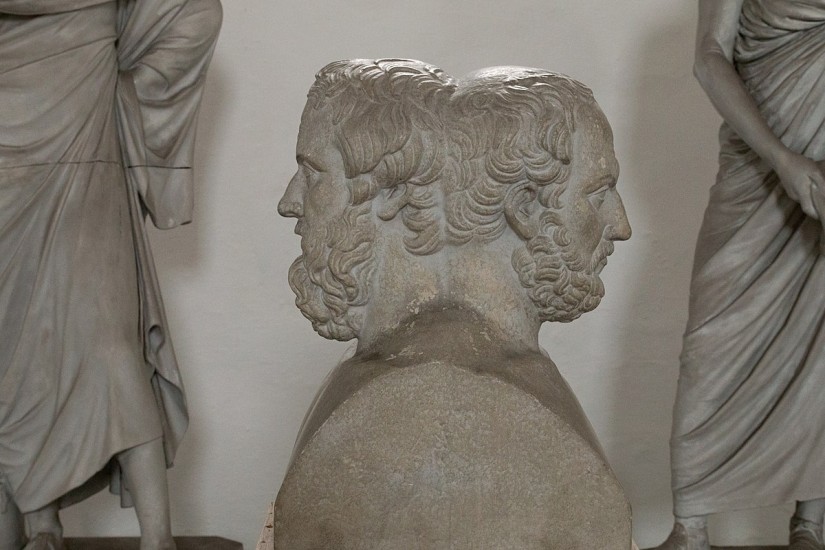American inventor Henry Ford famously said that history is "more or less bunk." Others have characterized history differently: as the essence of innumerable biographies, as a picture of human crimes and misfortunes, as nothing but an agreed upon fable, as something that is bound to repeat itself.
It's hard to define such a monumental thing without grappling with the tensions between what is fact and what is fiction, as well as what was included and what was left out. So it's only fitting that those tensions are wrapped up in the history of the word itself.
The short version is that the term history has evolved from an ancient Greek verb that means "to know," says the Oxford English Dictionary's Philip Durkin. The Greek word historia originally meant inquiry, the act of seeking knowledge , as well as the knowledge that results from inquiry. And from there it's a short jump to the accounts of events that a person might put together from making inquiries — what we might call stories.
The words story and history share much of their lineage, and in previous eras, the overlap between them was much messier than it is today. “That working out of distinction,” says Durkin, “has taken centuries and centuries.” Today, we might think of the dividing line as the one between fact and fiction. Stories are fanciful tales woven at bedtime, the plots of melodramatic soap operas. That word can even be used to describe an outright lie. Histories, on the other hand, are records of events. That word refers to all time preceding this very moment and everything that really happened up to now.
The distinction is still messier than that, of course.
